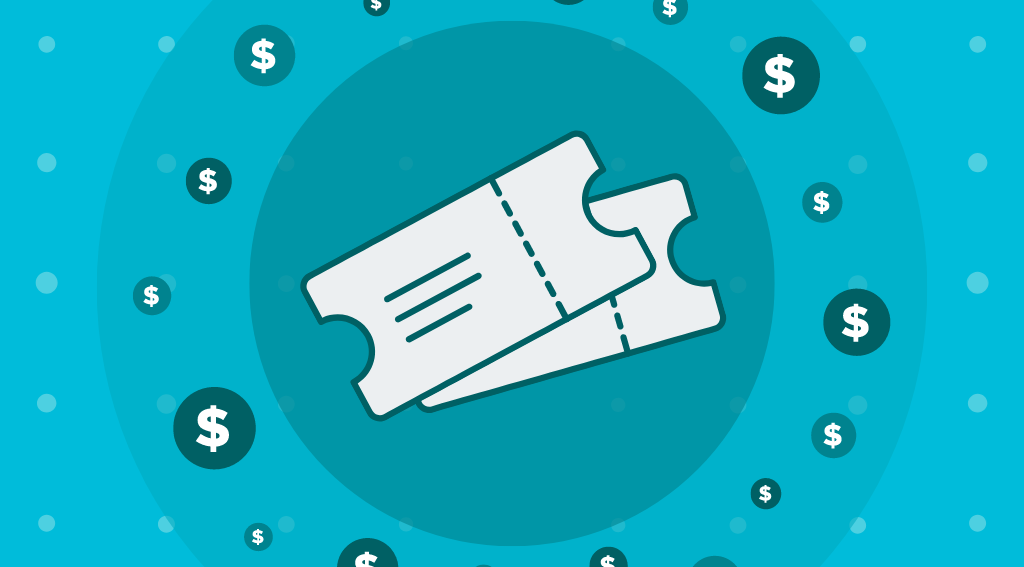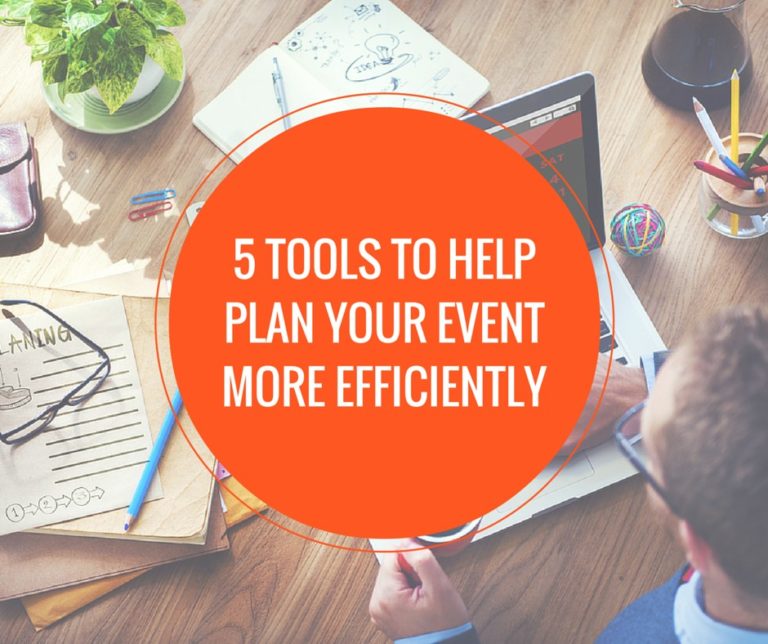Finding the correct cost per ticket is critical for event budgets. Price too high and you could drive people away. Price too low and you leave money on the table.
But fear not β it’s not the puzzle it seems at first. These 10 tips will teach you how to price tickets for an event in a way that drives sales, so you can get back to planning the fun stuff.
10 Insights on Accurate Event Ticket Pricing
Learning how to price tickets for an event is all about finding that sweet spot. It’s where potential attendees see your event as a great value, considering all the amazing things they get for their money. Here are the secrets to finding that perfect ticket price.
1. Determine How Much You Need to Make a Profit
To sustain your event and future events, you need to cover your costs and then some. The “then some” is your profit β your revenue minus expenses.
To figure out how much you need to bring in from ticket sales, calculate the cost of running your event. Include big fees like equipment and space rentals, plus smaller costs like sign printing.
When in doubt, estimate high. You don’t want to undershoot and end up with an event that doesn’t meet expenses.
Next, add up your income from sources other than ticket sales. That includes merchandise sales, food sales, donations, and so on.
Subtract the second number from the first. The difference is the amount you need to bring in from ticket sales to break even. Take that number and add your desired profit. Now you have your total ticket sales target. But how do you price each individual ticket?
2. Research Your Target Audience
Your ticket prices reflect the value attendees get from your event. To understand that value, you need to know your target market as well as possible.
If you’ve hosted this event before, look at your past registration data. This is where it helps to use an event management platform, which stores the answers to questions on your registration forms. You can go into your past registrations and find information like:
- Whether people came alone or registered with others
- Whether they bought “extras” like VIP access or tickets to special experiences
- Who bought tickets after a particular marketing push
If you don’t have past registration data, don’t worry! You can learn about your target audience’s needs by considering your event.
For example, a heavy metal music festival probably draws a younger and less affluent crowd than a flower show. You’d price the festival differently and offer different add-ons.
You can also send out a survey if you have a mailing list. Ask potential attendees why they’re interested and what they’d want from your event. The more of their wants you satisfy, the higher your ticket cost can be.
3. Consider the Laws of Supply and Demand
Consumers appreciate low prices and want the best value for their money. Sellers β including ticket sellers β want to sell at higher prices to make more money.
But if prices are too high, there’s less demand. Few people would buy a $100 ticket for a typical 10K fun run, even if it’s for a good cause.
Unless you’re able to offer something truly stellar like a Hollywood celebrity at the finish line, you need to bring the price down to a level that people can accept. Of course, it still needs to be high enough for you to make a profit.
That level is what economists call “equilibrium” β the sweet spot that works for sellers and buyers. For event hosts, it’s the point when a ticket seems like a good value.
4. Think About the Increased Value of Your Event Post-Marketing
People will think differently about your event’s value as they learn more about it. Don’t just think about pricing based on the facts of your event β where it is, how long it will be, and so on.
Think of your event promotion strategy and selling points, and how perceived value will increase. Settle price increases based on those selling points. This is called a value-based pricing model β pricing is based on what people get.
Imagine you’re selling tickets to a local music festival. What featured artists or special programming will appeal to your audience? Think about the perceived value after you market these can’t-miss aspects, then set your prices.
5. Offer Discounts and Promo Codes for a Competitive Edge
Every event competes with countless other possibilities. If you want people to, say, come to your open mic night instead of going to bar trivia or a different concert, you need to get them excited about buying a ticket. Discounts and promotions help you do that.
Psychology shows that getting something at a discount makes people happier. It increases “feel good” hormones and gives people a sense of agency, so they take action and buy.
If your tickets cost less than $100, offering a percentage discount is more effective. A dollar-value discount is better for prices over $100. This “rule of 100” makes your discounts seem more valuable.
Offer a limited number of discount tickets or have a coupon code expiration date to make your promo even more effective.
6. Decide How Many Different Types of Tickets to Offer
Before you price your regular or discounted tickets, you need to know how many price points you’ll have. Most events will have a general admission price. You may also choose to offer:
- One-day or multi-day passes
- Member and non-member pricing
- Adult, child, and/or youth pricing
- All-inclusive or admission only (charging separately for attractions)
- Virtual or hybrid admission
- Early bird tickets
In addition, many events have “add-ons” that attendees can buy with their tickets. Examples include:
- On-site meals or drinks
- Selected seating
- Special workshops or sessions
- Sweepstakes or contest entries
- T-shirts and other event merchandise
Adding extras to ticket sales will give you a better revenue estimate, letting you price tickets more effectively.
7. Base Your Ticket Pricing on Event Type
Different types of events have different pricing norms. Bigger events tend to have higher prices. Events in small towns and rural areas usually cost less than something in a destination city.
Do some research and find out what events like yours cost in your area. Hosting a beer festival? Google “beer festival” with your city name and find out what similar events are charging. Local listings can offer great event planning package pricing examples.
8. Create a VIP Experience
VIP packages offer a premium experience for a premium price. VIP tickets offer special experiences regular ticket holders won’t have, such as:
- Early entrance
- Preferred seating
- VIP lounge access
- VIP-only receptions and events
- Special transportation or parking
- “Swag bags” with event-branded and sponsor-branded merchandise
Think about what perks your audience will appreciate most. If possible, ask some of your regulars.
And remember, this isn’t just about appealing to your superfans. Listing a VIP ticket price will also appeal to your value-conscious ticket buyers. When listed alongside a higher-priced package, the minimum price seems like more of a deal.
9. Factor in Sponsorship and Entertainer Costs
It’s easy when pricing tickets to look at organizing costs β space, chairs, dance floors, and so on β and to balance these with your ticket sales. But don’t forget to incorporate the costs and incomes associated with your event’s most important aspect β the people.
Start by estimating the cost of your entertainment. This is a good time to set a budget for talent if you haven’t yet. Some talent will cost more than others, but if you have a figure in mind, you’re less likely to have costs exceed ticket sales.
If you have sponsors, how much will they contribute? Look at your sponsorship packages and how many you expect to sell. Estimate low here.
Work these two factors into your budget and adjust accordingly.
10. Look at Similar Events by Competitors
The final step is to ensure your ticket prices are competitive for your market. Base your pricing on the attractiveness and value of your event compared to others.
Don’t price your event too low. An excessively low event ticket price can make an event seem less valuable. You also don’t want to exceed the normal price range by too much. People might think you’re overselling.
Find a happy medium by comparing your event to others. Be as objective as possible.
Say you’re hosting a multicultural film festival. Think about things like how many films you’ll screen, who you’ll feature, and what “extras” (food, talkbacks, etc.) you’ll have with the artists. Compare your offerings to what people get at other festivals.
How to Use Technology for Your Event Ticket Pricing Strategy
There’s a lot to consider when learning how to price tickets for an event β expenses, special packages, competitive prices, and much more. But even when you price your own tickets, you don’t have to go it alone.
Events.com is a software platform that helps event organizers build, market, and run all kinds of events. From custom reports that help you understand your event’s appeal to easy ticket sales pages, Events.com helps you price and sell more tickets.
You have enough on your plate as an event organizer. Sign up for a demo today and find out how easy a successful event can be.




